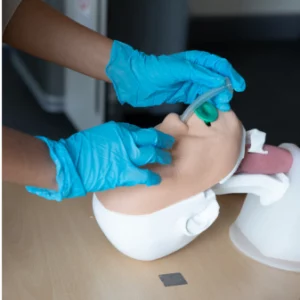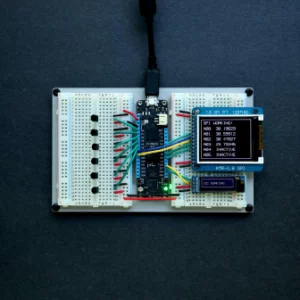Polygence offers ambitious high-school students the chance to pursue original research through 1:1 mentorship with expert academics from top universities.
Founded by scholars with ties to Stanford and MIT, it now connects learners to a global network of 2,000+ mentors across 40+ fields.
Through its Core Programme (ten personalised sessions) or short Pods, students create tangible projects. Papers, prototypes, or podcasts with options to showcase their work or earn college credit.
Here’s a comprehensive guide to Polygence.
Course Breakdown
| Programme Option | Who’s it for? | Duration | Subjects Covered | Outcomes | Cost (2026) |
|---|---|---|---|---|---|
| Core (1:1 Research Mentorship) | Motivated high-school students (no strict age cap) who want a custom research project with expert guidance | 10 one-hour sessions across ~3–6 months (milestone-based) | 40+ areas across STEM, social sciences, arts & humanities (2,000+ mentors) | Defined final deliverable (paper/app/podcast/portfolio) + 2 rounds of writing feedback | From $2,895; 6-installment plan available (+8% fee) |
| Pods (6-week mini-courses) | Students wanting a short, structured group experience | 6 weekly one-hour sessions (typically 2–6 learners) | Topic-specific Pods (e.g., Research Statistics, Neuroscience, Venture Capital) | A concrete deliverable (e.g., dataset analysis, mock review, presentation) | $495 |
| UCI × GATI (3 credits, optional) | Students seeking transferable university credit | Winter & Spring 2026 cohorts; fully online; partially self-paced | College-level research writing | 7–12-page paper; official transcript issued | $1,800 |
Note: Check their official website for their current pricing.
Why Choose Polygence?
Polygence bridges the gap between high school curiosity and university-level research by giving students the freedom to pursue genuinely original projects rather than follow a fixed curriculum.
Students can choose to write a research paper, build an app, create a prototype, or even record a podcast, developing their chosen outcome between sessions with the guidance of a mentor.
The programme uses a milestone-driven structure, with three clear checkpoints and two rounds of professional writing feedback, to provide direction while still allowing for independence and creativity.
A defining strength of Polygence is its personalised matching process: students are paired with mentors who are experts in their field, many affiliated with leading institutions such as Stanford, MIT, Harvard, and Oxford.
Similarly, Immerse Education places exceptional emphasis on academic calibre, with tutors drawn from Oxbridge and other world-renowned universities.
Its Online Research Programme offers both 1:1 and group formats, with accredited pathways awarding 8 UCAS points (UK) or 3 US college credits. Group tracks add collaboration through peer discussion, debate, and presentation skills, extending independent research in ways Polygence does not.
Immerse also runs residential programmes in Oxford, Cambridge, London, and international destinations, combining small tutorials (average 7), cultural excursions, guest lectures, and industry visits.
With over 30+ subjects and a global alumni network, Immerse blends rigorous research with accreditation, collaboration, and cultural immersion, offering broader preparation than Polygence’s virtual model.
Key Features of Polygence
Polygence’s Core Programme consists of ten one-hour sessions spread over three to six months, structured around three milestones with regular assignments and two rounds of professional writing feedback.
Admissions run on a rolling basis, with new cohorts starting monthly for students who apply by the 15th, and mentor matches are typically confirmed within one to three weeks. The Mentor Guarantee allows a rematch or refund after the first session if the fit is unsatisfactory.
Alongside Core, Pods offer six-week, mentor-led micro-cohorts of two to six students on focused topics such as AI applications, research statistics, and entrepreneurship, each with defined deliverables.
Students work through an online workspace between meetings and have access to a robust showcasing ecosystem, including the bi-annual Symposium of Rising Scholars, the Research Archive, and a Premium Showcasing track supporting up to three additional sessions.
For those seeking formal recognition, an optional UCI x GATI add-on awards three transferable college credits through a fully online, partially self-paced research-writing course.
Advantages
- Personalised research: Students design their own projects and outcomes—ranging from research papers to apps, podcasts, or prototypes.
- Flexible scheduling: One-to-one sessions arranged around school commitments, with rolling monthly start dates.
- Global accessibility: Fully online format removes geographic barriers and enables participation worldwide.
- Expert mentor network: Access to 2,000+ mentors across 40+ subjects from leading universities such as Stanford, MIT, Harvard, and Oxford.
- Strong showcasing ecosystem: Built-in opportunities to present at the Symposium of Rising Scholars, publish in the Research Archive, or pursue competitions through Premium Showcasing.
- Optional university credit: Partnership with UCI x GATI provides a clear pathway to earn three transferable credits.
Disadvantages
- No lab access: Projects must be feasible at home, limiting experimental or lab-based research.
- Online-only format: Lacks the immersive, social experience of residential programmes; Pods offer limited group interaction.
- High self-direction required: Students need strong motivation and independence, as the model is less structured than classroom-based learning.
- Cost considerations: Core tuition, bundles, and credit add-ons can be expensive; scholarships are limited, and installment plans carry an 8% fee.
- Variable peer engagement: The Core is 1:1, which reduces opportunities for collaborative learning compared to group-based programmes.
Polygence vs Immerse Education
Immerse Education offers three core pathways: Academic Insights, Career Insights, and the Online Research Programme (ORP), combining university-style learning, real-world experience, and one-to-one research mentorship across global locations.
| Feature | Polygence | Immerse Education |
| Age Range & Audience | Primarily high school students (no strict age limit). Any motivated student can apply. | Age 13–18, focused on learners preparing for university. |
| Admissions | Selective but not purely GPA-based; emphasis on intellectual passion and project potential. | Competitive; based on subject interest, readiness, and fit. Mentors/tutors often drawn from Oxbridge, Ivy League, etc. Recommended: upper-intermediate (B2) English proficiency |
| Teaching & Mentorship | 1:1 mentorship with experts (PhD students, researchers) in the student’s chosen field; flexible matching with mentor guarantee. | Tutors (often from Oxford, Cambridge or equivalent) lead sessions, supported by mentor “families” who also assist with pastoral / peer support. |
| Class Size | Core is individual (1:1); Pods have small groups (2–5 or up to 6) depending on topic. | Residential programmes use small tutorial groups (average 7 students) for classes. |
| Academic Depth | Depth customized to student’s project, with three milestones and two rounds of writing feedback. | Deep subject engagement via seminars, tutorials, and workshops in a curated curriculum across many disciplines. |
| Career Pathways & Outcomes | Focus on original outputs (papers, prototypes, podcasts), showcasing, and in some cases credit; supports stronger college applications. | Strong ties to academic environments and industry visits in residential programmes; helps provide exposure to career ideas through guest speakers, excursions. |
| Credit / Recognition | Optional UCI x GATI 3-credit research writing add-on (fully online). | Some programmes’ online research versions may carry 8 UCAS points or 3 college credits. Participants often receive letters of recommendation. |
| Deliverables | Student-defined final projects (paper, app, prototype, podcast etc.), guided by mentor and structured milestones. | Structured course outputs: essays, research presentations, group projects, creative works tied to subject curricula. |
| Learning Environment | Limited in-person exposure; includes virtual showcases, Symposium, Archive, and sometimes mentor-industry ties. | Residential programmes offered in Cambridge, Oxford, London, Boston, New York, San Francisco, Toronto, Singapore, Sydney, and Tokyo. Online options also exist. |
| Cultural & Industry Exposure | Limited in-person exposure; includes virtual showcases, Symposium, Archive, sometimes mentor-industry ties. | Rich exposure: campus life, cultural excursions, industry or academic visits, social programmes, intercity travel. |
| Online Options | Core and Pods are entirely online, with flexible scheduling. | Online Research Programme (1:1 or small group) with Oxbridge/Ivy League mentors |
| Best For | Core is individual (1:1); Pods have small groups (2–5 or up to 6) depending on the topic. | Students seeking immersive academic experience, peer interaction, campus exposure, tutorials plus social/cultural engagement. |
Is Polygence Worth It?
For self-motivated students with clear research interests, Polygence can be a powerful opportunity.
The chance to pursue genuinely original questions whether through a paper, prototype, or podcast, under the guidance of mentors from world-class universities is rare at the high school level.
Its milestone-driven structure and built-in showcasing options, such as the Symposium of Rising Scholars and Research Archive, can provide valuable outcomes for university applications.
Polygence also offers an optional college credit pathway via UCI x GATI, further enhancing academic credibility.
That said, families should weigh certain limitations. The online-only model means no access to labs, fewer opportunities for peer collaboration, and the absence of cultural immersion that comes with residential experiences. Costs can also be significant, especially with premium add-ons.
For students who thrive in structured, collaborative environments and want the inspiration of studying in world-renowned academic settings, Immerse Education’s Academic Insights and Career Insights programmes provide a more comprehensive alternative—combining small-group tutorials, cultural excursions, and industry engagement in cities like Oxford, Cambridge, London, and beyond.
Alternatives to Polygence
- Immerse Education – Academic Summer School: Oxbridge-style depth in Oxford/Cambridge/London (residential).
- Immerse Education – Career Insights: Project- and industry-focused experiences in global cities.
- Immerse Education – Online Research Programme: 1:1 mentored research online—closest structural alternative to Polygence.
- Lumiere Education: Research mentorship programme with focus on publication outcomes, similar to Polygence’s Premium Showcasing bundle.
How to Apply for Polygence
- Choose Your Programme – Select between the Core (1:1 mentorship), Pods (6-week mini-courses), or bundle options with add-ons.
- Apply Online – Submit your application through Polygence’s portal by the 15th to start the following month.
- Mentor Matching – Within 1–3 weeks, the team pairs you with a mentor aligned to your interests, with a Mentor Guarantee for a rematch or refund after the first session.
- Start & Showcase – Begin sessions (10 for Core, 6 for Pods) and work toward your final project, then present at the Symposium of Rising Scholars or publish in the Research Archive.
Final Thoughts
Polygence delivers a well-structured online research route with personalised mentorship, defined milestones, and credible showcasing, plus an optional credit pathway through UCI x GATI.
For students who thrive independently and want a flexible schedule, it’s a compelling option.
However, for students seeking comprehensive university preparation, cultural immersion, or collaborative learning experiences, Immerse Education offers a more holistic alternative.
With programmes spanning Oxford, Cambridge, London, and global cities, Immerse combines rigorous academics with the inspiring environment of world-class universities, peer interaction, and cultural experiences that can be transformative during crucial developmental years.




















